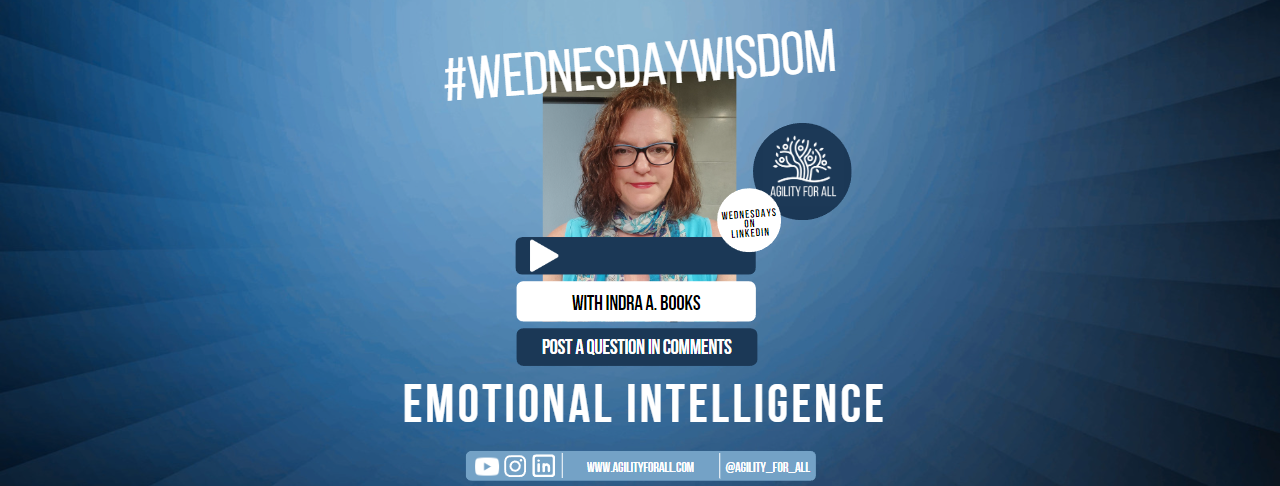
Wednesday Wisdom: Emotional Intelligence
25/10/2023
Today's Wednesday Wisdom is brought to you by Indra Books, CEO and Founder of Agility for All. Do you have a question? Post it in the comments.
In recent years, the role of emotional intelligence and leadership has gained significant attention. As individuals strive to become more effective leaders, there is a growing interest in developing their emotional intelligence skills.
This topic delves into the importance of self-awareness, empathy, and relationship management in leading and motivating teams.
So what exactly is emotional intelligence? Emotional intelligence goes beyond traditional measures of intelligence or technical expertise. It encompasses the ability to understand and manage one's own emotions, as well as recognize and empathize with the emotions of others.
Leaders who possess high emotional intelligence have a distinct advantage when it comes to building strong relationships, fostering collaboration, and inspiring their teams.
Self-awareness is a fundamental aspect of emotional intelligence. Self-awareness allows leaders to make conscious choices that align with their values, while empathy enables them to understand others' perspectives genuinely.
Leaders who are self-aware, understand their strengths and weaknesses, allowing them to make more informed decisions that align with their values and goals. By recognizing their own emotions and how they impact others, they can effectively regulate their behavior and respond appropriately in various situations.
Empathy plays a crucial role in leadership as it involves understanding the perspectives and feelings of others. Leaders who demonstrate empathy create an inclusive environment where team members feel valued, heard, and supported. By actively listening to their team members' concerns or challenges, empathetic leaders can address issues effectively while fostering trust within the team.
Relationship management is another essential component of emotional intelligence in leadership. Effective relationship management fosters collaboration within teams leading to increased motivation and productivity overall. Effective leaders build strong relationships based on trust, respect, and open communication. They are skilled at resolving conflicts, diplomatically while promoting collaboration among team members by nurturing positive relationships within the team, leaders can motivate individuals to achieve shared goals collectively.
And that is today's Wednesday Wisdom. Don't forget if you have a question post it in the comments. Tune in next week for our next segment and catch up on past episodes on our blog pages.
Learn more about the work that we do and the programs that we offer. Set up a call to start planning how you want to change the culture of your organization.
Learn More
About the Author:
 INDRA A. BOOKS
INDRA A. BOOKS
With 25 years of award-winning coaching and leadership experience, Indra has a passion for helping companies, teams, and individuals bring about meaningful, goal-oriented transformations which are firmly grounded in Agile principles. She currently works from Spain with companies around the world to achieve sustainable growth based on true agility; helping them make value-based changes and see results with high-performing teams.
Connect with us
 |
 |
 |
Search

WELCOME TO THE AFA LEARNING PORTAL
We offer loads of free information here in the blog and also in our
resource library
AFA provides coaching, consulting, and training programs. In addition to specialized consulting, you have the option to choose from:
- group coaching programs
- masterclasses
- 1-week intensive offsites
Our programs are designed to help your organization to:
- Maximize Employee Engagement
- Foster Self-Organization
- Encourage Innovation
- Attain Higher Performance
- Be More Agile
